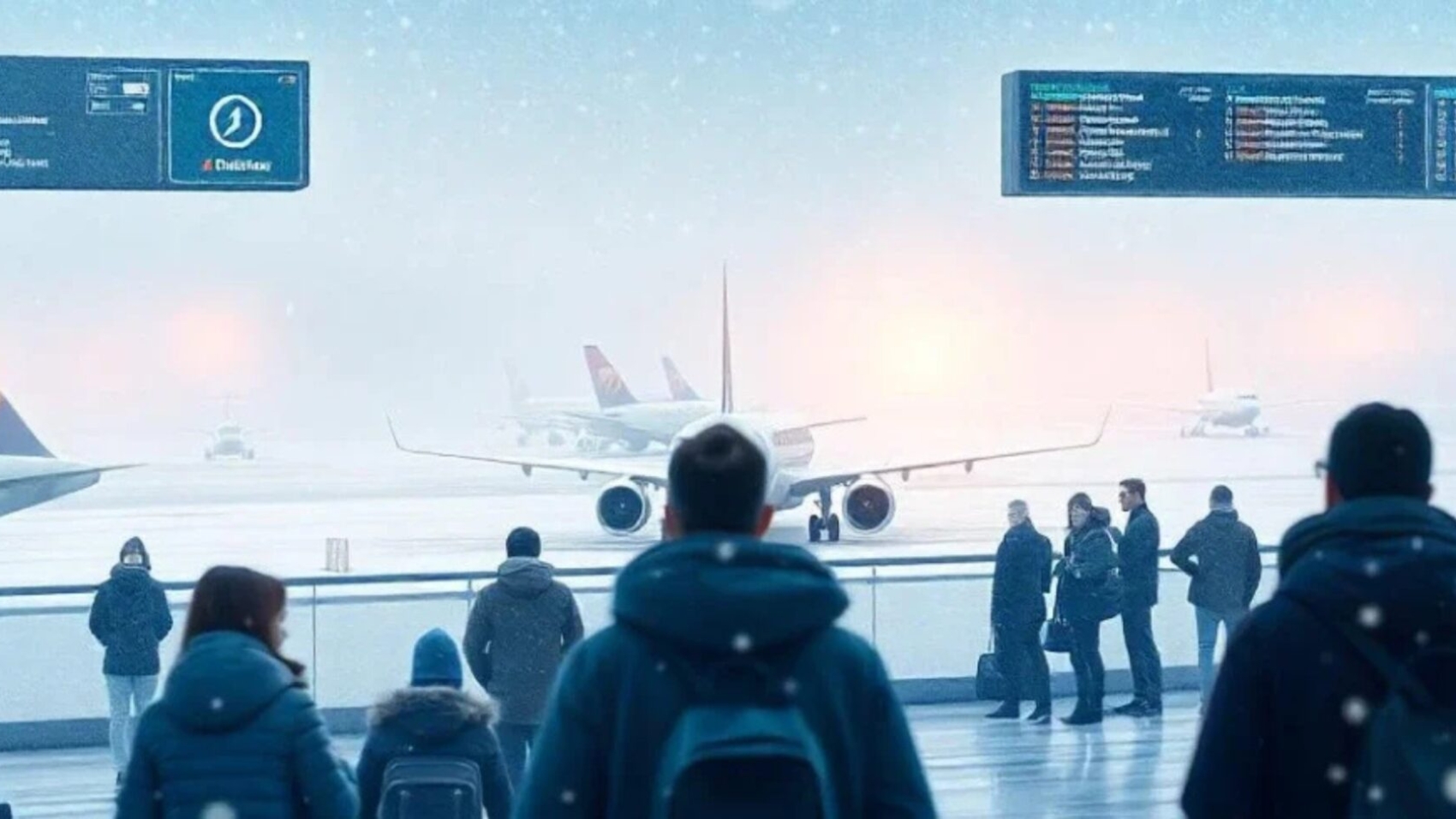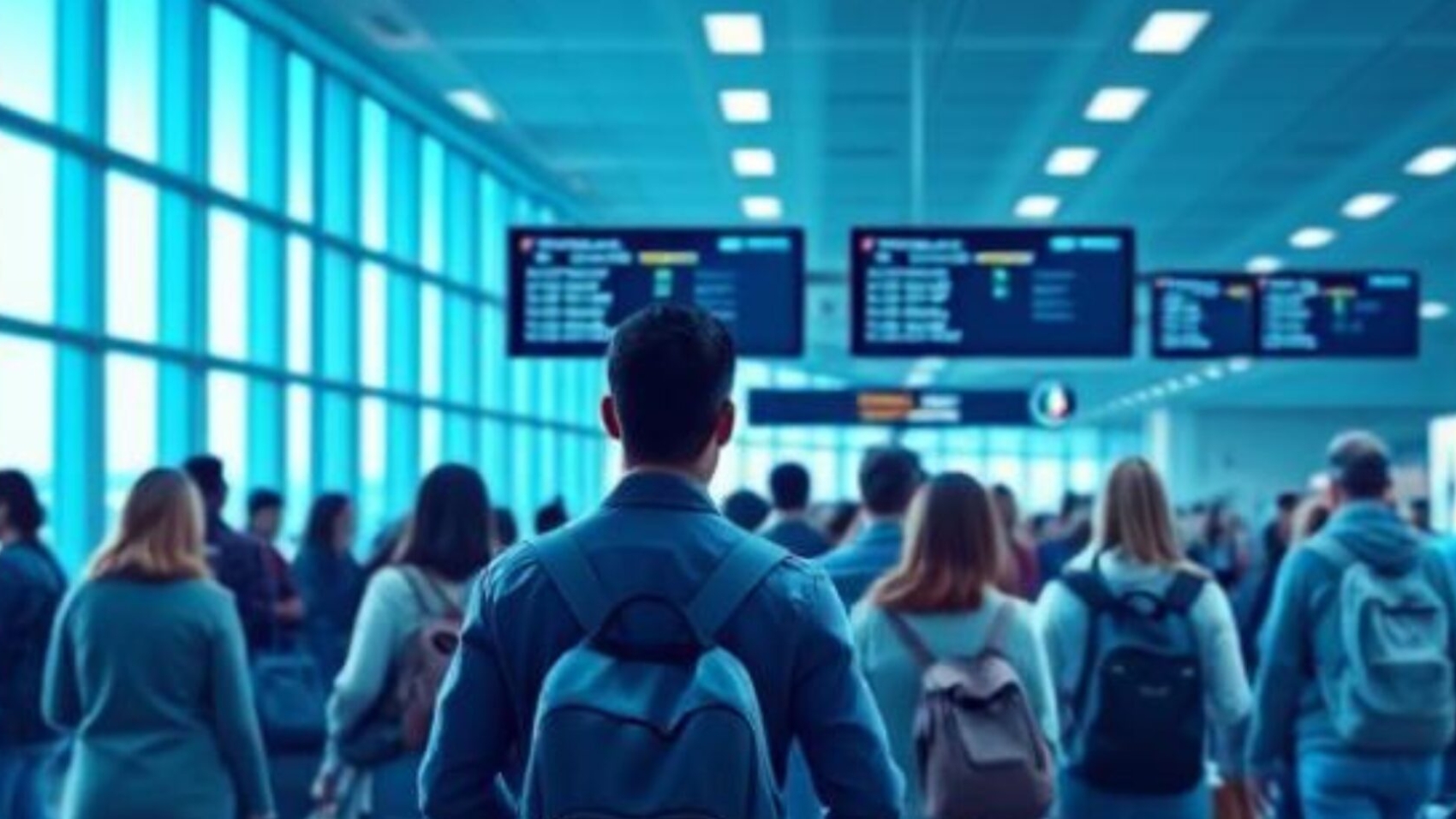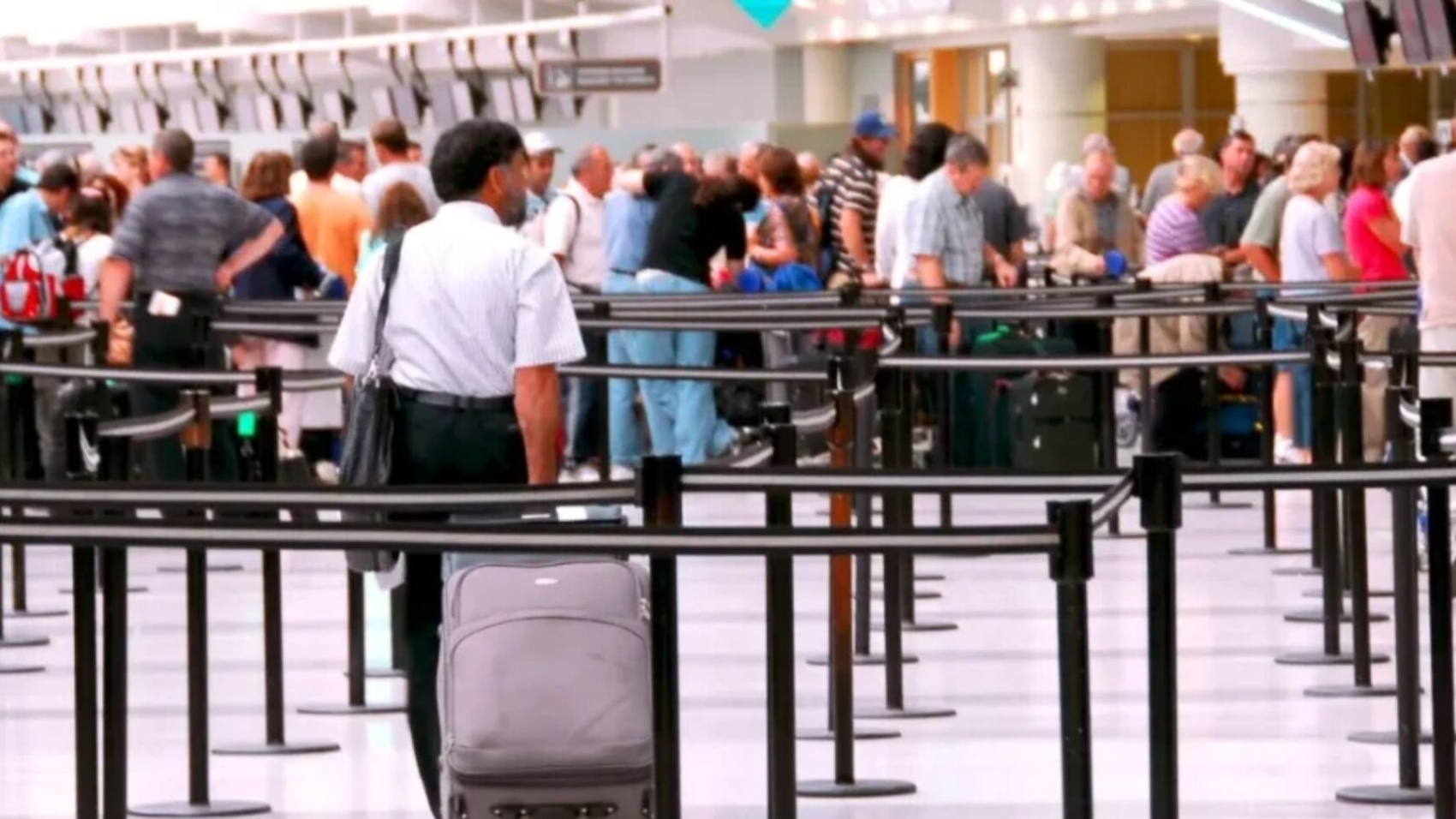Have you ever been set to travel when the dreaded “Your Flight Cancelled” message pops up” Its frustrating right?. But behind every cancellation there’s a reason.
Airlines have a lot of problems. These problems can be things, like weather that they do not expect. Sometimes the planes have issues. Airlines also have to deal with not having crew members. All these things can make it difficult for airlines to keep flights safe and run as they should.
The U.S. Department of Transportation says that 1.2 percent of flights were cancelled in 2023. This caused a lot of problems for people who were planning to travel. Sometimes the reason for these problems is an event. For example the Federal Aviation Administration system had a glitch in January 2023. This glitch was very bad. It stopped over 10,000 flights in just one day. The Federal Aviation Administration glitch was an issue that affected a lot of flights.
The problem with flights is getting worse because there is a shortage of pilots all around the world. The International Air Transport Association says the airline industry needs 255,000 commercial pilots by 2033. This is because more people want to fly. Airlines have a time finding new pilots quickly especially when a lot of people are traveling, like, during summer vacation. This makes it really tough for airlines to have pilots and that is a big reason why some flights get cancelled. The pilot shortage is a deal and it is affecting the aviation industry and airlines in a major way. The aviation industry and airlines need to find a way to solve the pilot shortage problem.
What really happens when your flight gets cancelled? Let’s break the flight cancellation process. When the airline cancels your flight you probably want to know what is going on with your flight. The airline will tell you your flight is canceled. What does that really mean for your flight?
1. Threatening Weather
The weather is a deal when it comes to flights. It can be really bad. Change a lot. This means airlines have to cancel flights because of safety concerns. They do this when there are storms, like cyclones or snowstorms or thunderstorms. Really thick fog can be a problem. The weather is something that can affect flights in a way. Flights are canceled due to weather.
So a city’s weather problems do not just affect that city. A blizzard in New York can cause flights to be disrupted in the United States and outside of the United States. Why does this happen? This is because air transport is connected in such a way that one delay can cause a lot of delays. A blizzard in New York can delay flights in New York. This can delay flights elsewhere.
The weather is getting worse. This means that things like flights and outdoor events are being cancelled often. This is due to climate change. Climate change is making bad weather happen more often. Such, as:
- Lightning flashes and thunderstorms.
- A whole lot of snow and blizzards.
- Thick fog is really bad because it makes it hard to see things. Thick fog hampers your vision.
- Hurricanes or strong winds.
What matters is that safety always comes first. We should only let planes fly when the sky is safe and clear. That means planes can only take off when everything is okay. Safety is the thing we think about when it comes to planes so we make sure the sky is perfect before we let them go. The sky has to be safe and clear for planes to take to the air.
2. Technical Issues
Aircraft are complicated machines. They need to be checked and fixed a lot. Sometimes things can go wrong with an aircraft. This can be things like electricity or engine problems. Sometimes the safety systems of an aircraft can have problems too. These problems need to be fixed away which can be a big deal, for an aircraft. Aircraft must be safe to fly.
The Federal Aviation Administration says technical issues caused about half a percent of all cancellations in 2023. This might not seem like a lot. It really shows how much the Federal Aviation Administration and the airlines care about safety and making sure everything is working properly before flights take off. The Federal Aviation Administration and the airlines are always trying to prevent problems, which’s why the number of cancellations due to technical problems is so low.
I do not want to get on an airplane that has problems that are not fixed. Probably nobody does. My trip will be safe if the airline keeps planes on the ground to check for problems. The airplanes need to be safe. The problems with airplanes have to be solved before I get on an airplane. If the airplanes are not safe then the airline company should ground the airplanes for inspections to make sure the airplanes are okay.
3. Lack of Pilots or Staff
Pilots and cabin crew and ground personnel are really important for flights to take off. On the hand flights get cancelled when:
The crew members are working more hours than they are supposed to. They are going over the hours that they are allowed to work. The crew members are putting in a lot of time.
People who work for a company can suddenly get sick. Employees do not always know when they are going to become ill. Sometimes employees fall ill without warning. This can happen to employees.
The crew is unavailable because earlier flights were delayed. This is causing crew availability issues. The delays from the flights are the main reason for the crew availability problems.
The problem is worsening due to pilot shortages worldwide. The pilot shortage is an issue. By 2033 the aviation industry will need 252,000 commercial pilots over the next ten years that is what IATA says. For airlines finding pilots fast is a big challenge especially when they are really busy. The pilot shortage is making things difficult for airlines.
The main thing to remember is that no flight is going to take off if there are no crew members to operate the flight. The crew is essential for any flight to take off safely. So if the crew is not there the flight will not take off. This is because the crew is necessary to make sure the flight is safe for everyone on board. No flight can take off without a crew.
4. Air Traffic
Think of the skies as roads. Air traffic controllers step in to limit the number of planes that can take off and land when things get busy. Some of the reasons, for this are:
- Congested airspace during rush hour.
- Temporary runway closures; and
- Problems with staffing at ATC facilities.
Air Traffic Control oversees a number of aircraft every day all around the world, more than 100,000 aircraft per day globally. This is why Air Traffic Control is so important, to prevent disasters.
Sometimes Air Traffic Control has to put restrictions in place. This often results in flight cancellations that Air Traffic Control cannot avoid.
The Federal Aviation Administration says that when flights are late because of air traffic it costs the economy a lot of money thirty three billion dollars every year. Air traffic delays are a problem for the American economy. The American economy loses thirty three billion dollars because of these air traffic delays.
5. Security Concerns
Airports do not take any chances when it comes to the security of airports. The security of airports can be disrupted by small things like:
Suspicious baggage requiring further checks.
When people on a plane behaved badly the airline staff removed those passengers from the flights. The airline staff took action against passengers who were being unruly. These passengers were removed from flights due to their behavior.
Potential dangers or riots near airports.
The Transportation Security Administration has some information about what happened at airports. When airports started doing more to keep people safe something unexpected happened. The Transportation Security Administration says safety concerns caused more flights to be interrupted in 2023. Actually The Transportation Security Administration found out that these security problems made flights stop or be delayed 12 percent often in 2023.
The main thing to remember is that a flight being cancelled is not a deal when you think about how important safety is. Safety is what really matters. A cancelled flight is a small price to pay for safety.
6. Bird Strikes
Bird strikes when airplanes hit birds can be really weird.. Bird strikes can seriously damage aircraft engines and windshields. Bird strikes are a problem because they can cause a lot of damage to airplanes.
The Federal Aviation Administration has reported more than 17,000 wildlife strikes in the year 2022. This is a problem for the aviation sector because it costs them around $500 million every year. When a bird strike happens the flight has to be stopped until the aircraft is checked to make sure the aircraft is safe to fly. The Federal Aviation Administration takes this seriously so the aircraft is always inspected after a bird strike to make sure the aircraft can fly safely.
7. Operational Decisions
Airlines sometimes cancel flights on purpose to keep things running smoothly. The reasons, for this include:
When there are no people on a flight and the flight is under-booked the airline company can combine these flights to avoid losing money on the under-booked flights. This way the airline can operate the flights with a passenger count and not lose money on the flights that are under booked.
When employees go on strike it can really hurt the way a company operates. Strikes are a problem because they happen when employees walk out of their jobs. This kind of thing can seriously impair operations at a company. Employee walkouts or strikes are an issue for any business.
When it comes to route optimization airlines usually give priority to routes that’re in high demand and make a lot of money. These high-demand routes are really important to airlines because they can profit from them. So airlines will often focus on these routes first. Route optimization is about figuring out the best routes for airlines to use and high-demand routes are a big part of that. Airlines want to use their resources on routes that will bring in the money, which is why they prioritize high-demand routes.
In 2023 the carriers used some ways to look at the data and figure out how to stop so many flights from being cancelled. They were able to reduce cancellations by 25 percent. The carriers did this without disrupting their schedules or making their customers unhappy. They still managed to do their job and meet the customer demand for flights. The carriers and customer demand for flights were both very important to them.
8. Delay Ripple
Airlines work hard to make sure their flights run on time. They have tight schedules that they need to follow.. When one flight is late it can cause problems for other flights. This can happen because of weather or maybe the plane needs some repairs or the crew is not ready to fly. When this happens it is like a row of dominoes falling down one after the other. The late flight can make Airlines flights late too and that can be very frustrating, for people who are waiting to travel on Airlines flights.
So when a flight is delayed in the morning it can mean that the evening flight will be cancelled. This is because the flight crew or the aircraft itself will not be available. The system that runs these flights is very connected which means there is no room for mistakes to happen with the flight crew or the aircraft.
How are airlines handling it?
The good thing is that airlines are finding ways to deal with problems when they happen. They want to make things better, for people who fly with them. Here is what airlines are doing to solve these problems:
1. Real-Time Communication:
People who are traveling now get updates through apps, emails or text messages, about flights that are delayed, canceled or need to be rebooked. This helps travelers, like passengers, make decisions and it reduces the uncertainty that passengers have when something goes wrong with their flights. Passengers like to know what is going on with their flights.
2. Automated Rebooking Flows:
Airline companies have systems that help people get on flights easily. This means people do not have to wait in line for a long time.
Airline disruption management software helps to make things easier for airline companies. They can get people on flights quickly and without any problems. Airline companies like this because it makes rebooking flights easier, for people.
3. Passenger Prioritization:
Airlines use an advanced scoring system to determine that passengers are most impacted and prioritize their re-accommodation. Factors such as missed connection, travel urgency or special needs are taken into account.
Flight compatibility scoring: Ensures travelers are matched to best available flights quickly.
Operational efficiency: By automating Priortization, airlines reduce workload on staff and improve response time.
4. Self-Recovery Tools:
Digital platforms make it easy for passengers to rebook flights, ask for refunds or get vouchers by themselves. This helps travelers to handle disruption without relying on long term customer service queues.
VoyagerAid: The Ultimate Solution for Airlines Disruptions
When flights get cancelled it can really mess things up, hurt the trust that customers have in the airline and cost a lot of money. But with VoyagerAid airlines can handle these problems in a better way they can really take control of flight cancellations and all the issues that come with them using VoyagerAid.
From dealing with changes to flights and giving money back to people to managing who gets on a flight first and helping airlines get back on track, VoyagerAid gives airlines the tools they need to reduce problems and make things better for the passenger. VoyagerAid does this to help airlines and make the experience better for the passenger when they are flying with VoyagerAid.
Why VoyagerAid?
- Optimize rebooking processes for quicker resolution.
- Enable customers to self-recover.
- Maximize operational efficiency and minimize manual processing.
- Facilitate timely communication with customers during events.
Don’t let cancellations ground your success. Choose VoyagerAid to optimize your airline disruption management solutions’s operational excellence.









